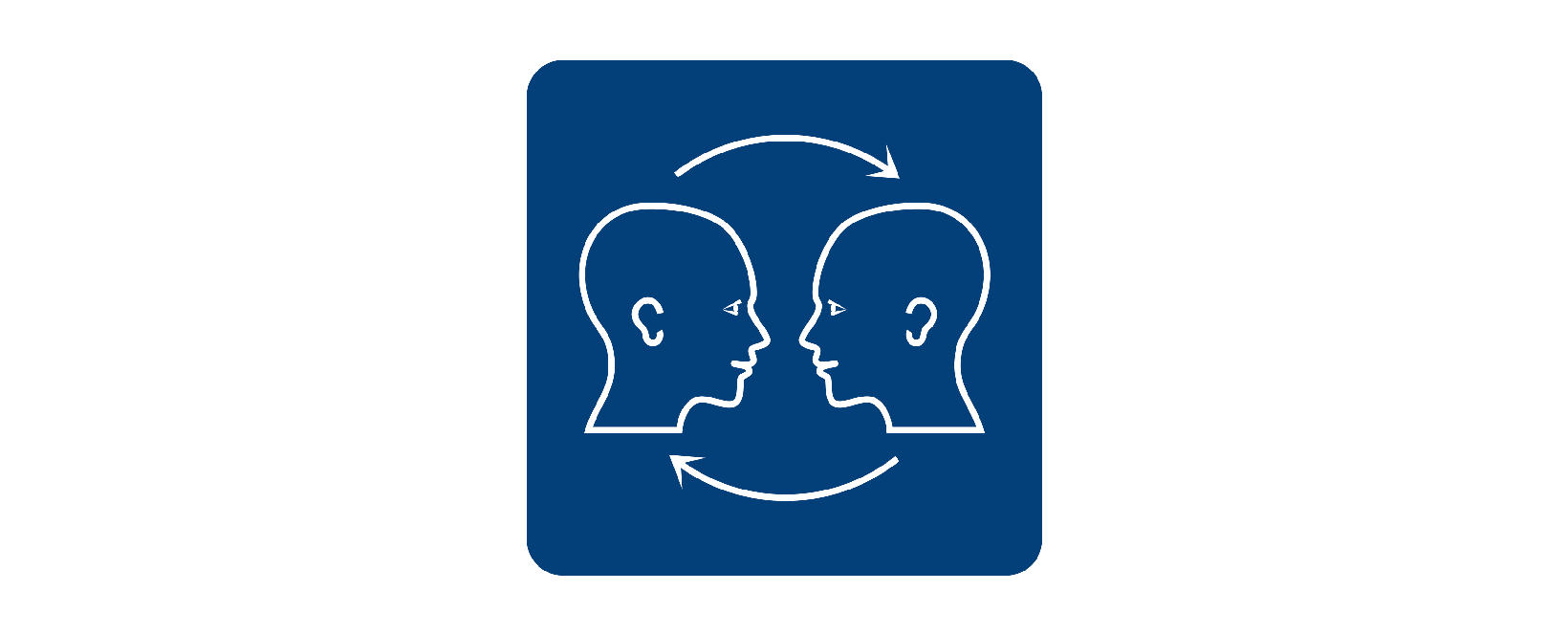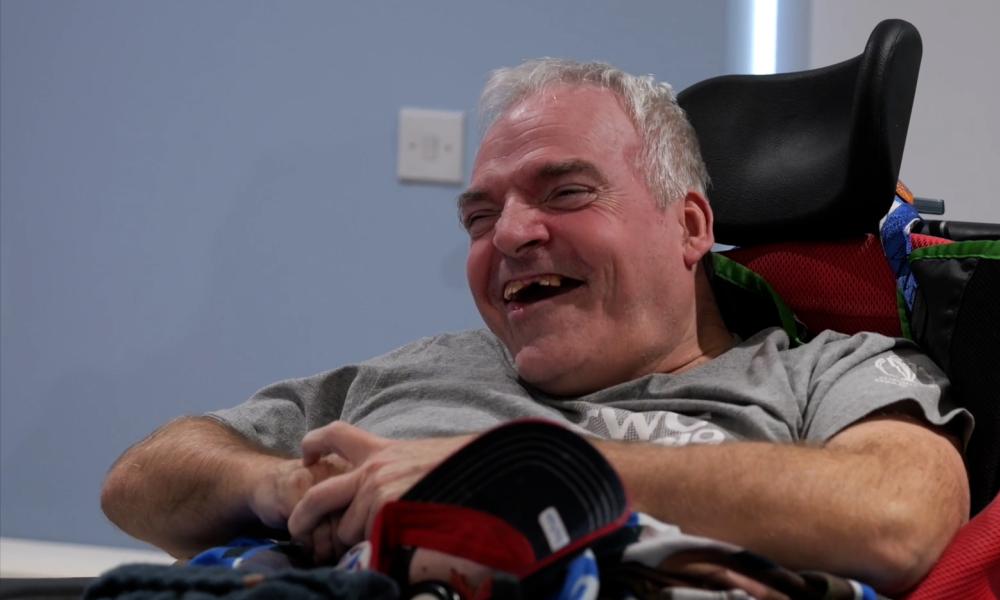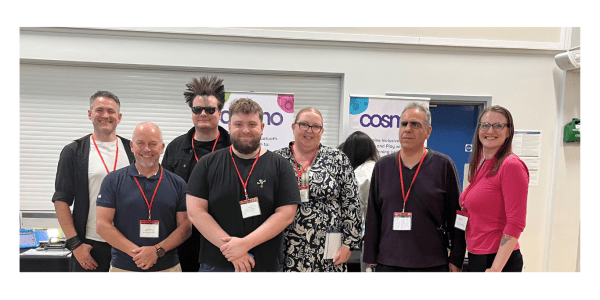
Assistive Technology at Leonard Cheshire
We're bringing life changing technology to the people we support in our care settings and empowering staff to support this comfortably.
It all started for us in 2020 with our pioneering Assistive Technology project, which transformed our Hill House Nursing and Care Home in Sandbach into a 'Centre of Excellence'.
We develop and provide 'specialist person centred' assessments and interventions, improving the care experience for residents and staff alike.
Our Assistive Technology & Innovation Hubs
In 2023 we expanded our Hill House centre to trial the concept of Regional Assistive Technology & Innovation Hub's. Evaluating how we could expand our Assessment, Delivery and Tiered Support structures to extend Assistive Technology to cover nine sites and a total of 120 clients across Central England.
The programme has been more successful than we could have hoped and provided us with the learnings and blueprint to open our second Regional Assistive Technology Hub, based in Newcastle-Upon-Tyne in August 2024, covering a further nine sites and 150 clients across the North of England.
Subject to continued charitable funding, we hope to extend this concept nationally over the coming years, extending the support we provide to our very special clients.
What will the programme deliver?
Residents will benefit from specialist technology, as well as mainstream accessible technology. Some technology you'd even find at home, but we're applying it to a social care setting. The technology aims to give residents who struggle with verbal communication a voice. It also helps improve social interaction opportunities.
The technology is combined with the support of Community Speech and Language Therapists, Occupational Therapists and our own Specialist Assistive Technologists. Together, we help each individual get the most out of the technology. Discovering what it is the individual wants to do, what the barriers are and how we can work step by step to overcome them.
The technology will help increase the independence of the people we support. It will help them access more of their local communities. And provide better care for themselves too.
In 2023, we were proud that our work was recognised as ‘Communication Accessible’ by Communication Access UK. An initiative led by the Royal College of Speech and Language Therapists developed in partnership by charities and organisations that share a vision to improve the lives of people with communication difficulties.

Why are we doing it?
Social isolation and loneliness are challenges that disabled people are often faced with. But the possibilities that technology offers to help combat this are immense. The internet can connect people to their loved ones all round the world. Other developments are making accessibility at home even easier.
Our mission is to ensure that such technology is available to all, whatever their ability. We use the technology to help people live, learn and work as independently as they choose. The accessible activities we offer also provide greater opportunities for social inclusion.
We're working with the best technology companies to deliver, and in some cases develop or pilot, state of the art technologies. Together, we will determine what works well in the long term. Looking to the future, we hope that our other care homes will also benefit from the project from PhD Research that we will publish.
You might also be interested in
Any questions?
For more information about the project please contact David Hursthouse on david.hursthouse@leonardcheshire.org or call 07541 771090.


